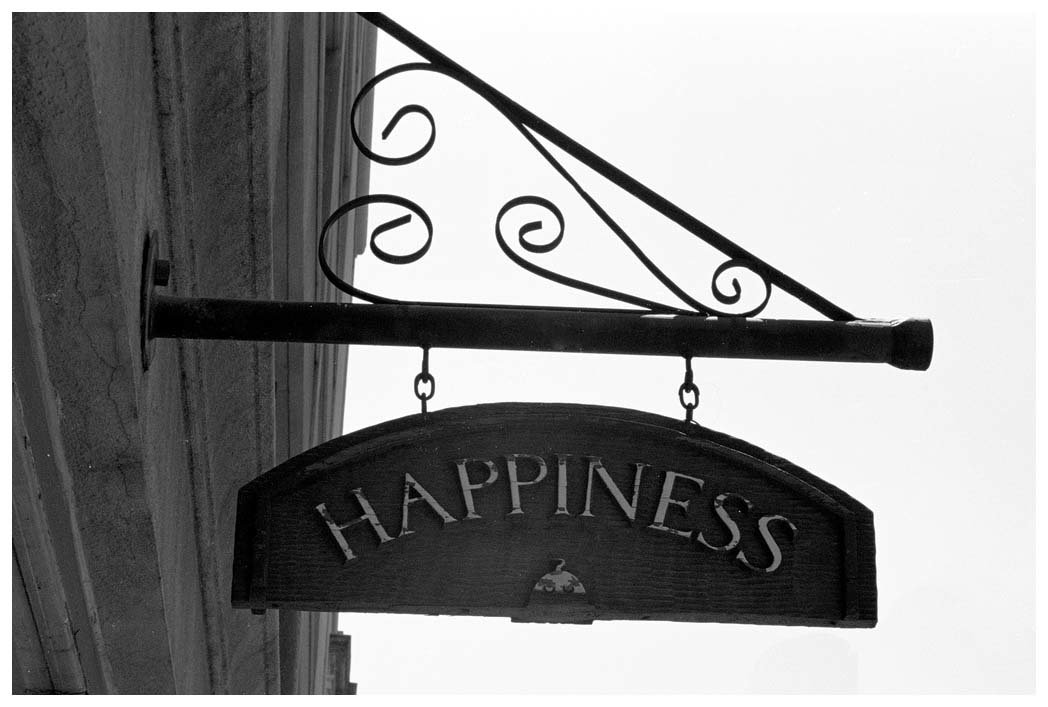
Conclusion of yesterday’s column.
Reporter: I think lots of people confuse happiness with fun, and the dangers there are obvious. People who are always looking for that moment-to moment ‘high’ are, it seems to me, far less likely to find long-term peace of mind. But if happiness isn’t fun — if it isn’t a state of joy/euphoria — then, again, what is it?
Dr. Hurd: Happiness is the pursuit of values in life: Long-range, tangible accomplishments that you find meaningful and purposeful. ‘Refueling’ and recreational time is fine and to some extent even necessary, but these are the side dishes of life, not the entrees. Those are what you have defined as your central purpose for a long period of time. Without a central purpose, you’re left with life as a series of side dishes, junk snacks and sweets. It does the same thing to the mind that it would do to the body. I maintain that everybody, whether they acknowledge it or not, needs a purpose of some sort. And it cannot be dictated by others. It has to be a personal choice relevant to that individual. Happiness is a broad concept, but it’s a real, objective and essential one that each of us must make concrete for ourselves.
Reporter: In the beginning there was the ‘codependency movement.’ This was chiefly aimed, of course, at women who were ’emotional hostages’ to the self-centered, unpredictable/unfeeling behavior of the men in their lives (often alcoholics or substance abusers). This movement was later broadened to (seemingly) include anyone who considers the feelings of others in making major decisions about life. And now, it seems, the movement has reached full flower: It implies that your own personal journey to happiness is all that matters. This seems like a justification for extremely hedonistic, callous behavior. A few years ago I used my blog to make a personal appeal for the (true) stories of people who’d been caught in the crosshairs of someone else’s ‘self-actualization.’ Some of the responses I got were hard to believe: Men who walked out on their wives and infant children because ‘this simply isn’t meeting my needs anymore,’ women who quit their jobs and forced their children into welfare because ‘my job no longer makes me happy,’ etc. So in that sense, we could almost say that happiness is not just less than meets the eye, but sometimes plainly dangerous to those around us. How does one go about that fine balancing act, weighing one’s own needs against the interests of the people who love and depend on us? Or is it all just an instinctive crap-shoot?
Dr. Hurd: It’s not a matter of balance as much as proper definitions. I often say to my life coaching or therapy clients, ‘You are, and should be, the center of your own universe. But you have to maintain and respect that everyone else is the center of his or her own universe, as well.’ This is not to suggest that reality is subjective. In fact, I maintain that reality is objective; that there is a world ‘out there’ that we can perceive with our senses and about which we can form concepts. Objectivity is a key part of how to get around this seeming dilemma of ‘me versus them.’ If you’re objective and rational, then there’s nothing to fear from self-interest — yours, or another’s. A rational person will respect your basic individual and property rights. (The supposed purpose of government and police/courts is to restrain those who feel otherwise).
The problem I see with a lot of the ‘self-actualization’ ideas in the self-help movement is not that they’re encouraging concern with the self — but with the way they define the self, or whether they even give the self any definition. It’s essential to care for one’s self, but in a context that is rational, self-responsible, self-determining and objective. You can’t claim something is true just because you feel it. Much of the self-help movement claims exactly this or, if not going that far, is vague enough that it opens the door to being interpreted that way. You mention the men who walk out on their children. Well, put that way it’s always wrong to divorce. But is it? Does leaving a bad marriage necessarily mean abandoning the child? There are children from intact marriages who felt abandoned all through childhood, and there are children of divorces who, while finding the divorce difficult and disruptive at first, certainly left childhood feeling loved by both parents (and even the stepparents, in some cases). In that context, as in so many others, it’s not that divorce is inherently right or wrong; it’s whether you handle it in a rational way that honors the needs and rights of the children, rather than proceeding as if no such things even exist.
It’s wrong to blame the self-help movement for ‘selfishness,’ because we all operate within the context of a self. The core of our selves is our minds. It’s what we do or don’t do with our minds that counts, whether we’re mindless, or rational, objective and thoughtful. Speaking for myself, I don’t want to live in a world where nobody pursues their own interests and only thinks of me. That’s a neurotic’s fantasy. I want to live in a world where, ideally, everyone, or at least most people, happily and rationally pursue their own interests, leaving me free to do the same.
